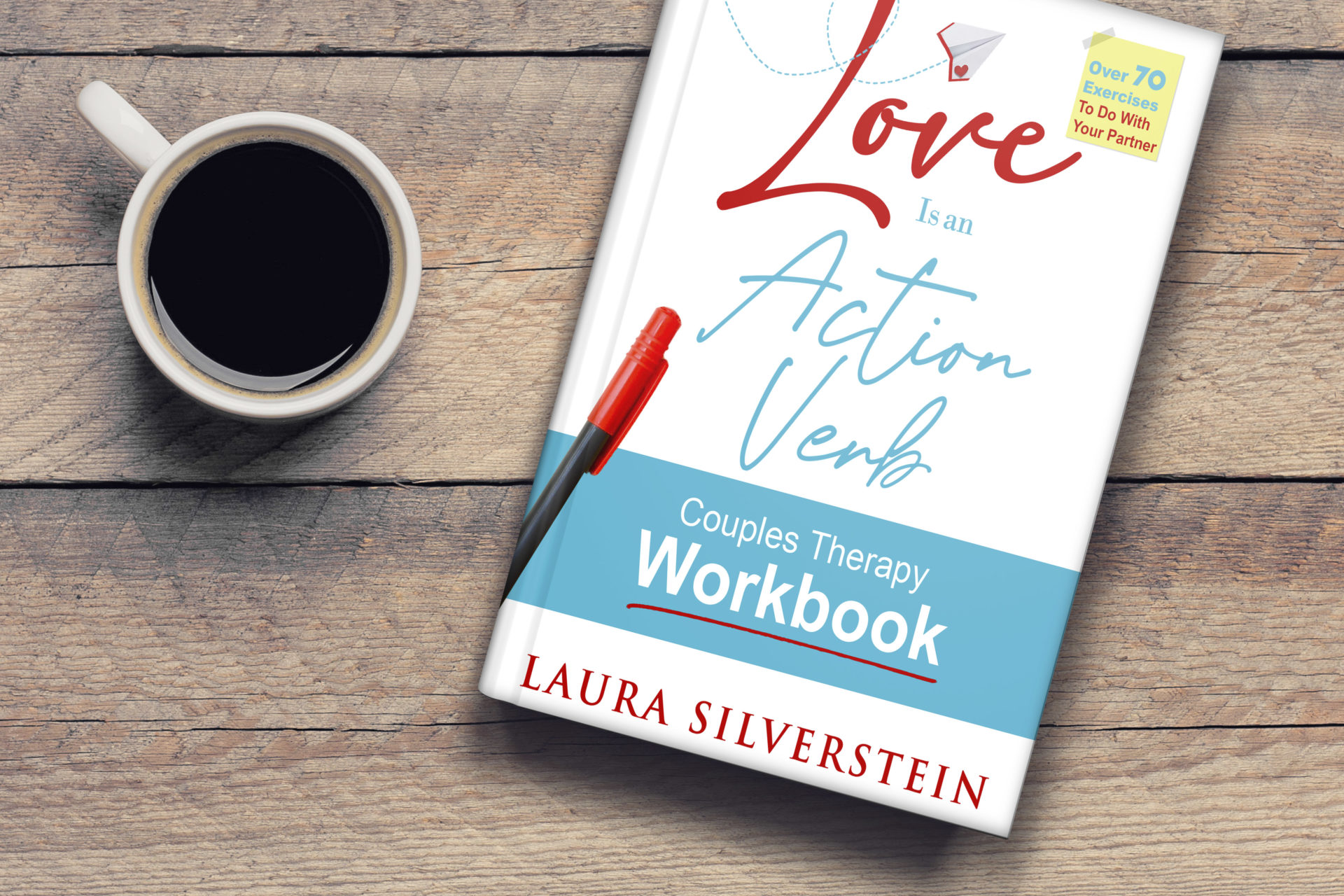
What are the Four Horsemen of the Apocalypse that lead to the end of the world?
Death. Famine. War. Destruction. (Book of Revelation (6:1–8)
Who is John Gottman and what are the Four Horsemen of the Apocalypse that kill relationships?
Criticism Defensiveness Contempt and Stonewalling. (John Gottman’s Seven Principles for Making Marriage Work)
Be Not Afraid
Much of the literature on John Gottman’s Four Horsemen is delivered with the same degree of fear as if it were the apocalyptic end.
Fear anxiety and panic are not surprising reactions when couples read statistics about what leads to divorce with 90% accuracy. I am one of the many couples therapists trying to help people fight less and improve their communication by changing how they talk to each other. So it is useful to share what leads to separation and what leads to constructive conflict management.
Still, I believe we might create a bigger problem if we instill fear instead of offering helpful solutions. Fear increases intensity instead of de-escalation, which is the desired outcome of conflict management.
The reality is EVERYONE has the first two horsemen in their relationship (criticism and defensiveness). We can all be critical at times, and we can all get defensiveness. So when these less-than-perfect communication patterns rear their heads in your disagreements, it is helpful to expect and manage them instead of becoming frightened that there is something terribly wrong with you, your partner, or your relationship.
Who’s Your Favorite of John Gottman’s Four Horsemen of the Apocalypse?
Criticism
Defensiveness
Contempt
Stonewalling
The John Gottman four horsemen book, The Seven Principles for Making Marriage Work, is a New York Times Bestseller that identifies what couples can do in their every day lives to improve their relationships. Gottman outlines the four most destructive communication behaviors as criticism, defensiveness, contempt and stonewalling.
Take this quiz to see which of these four horsemen is most prevalent in your relationship:
The first step to improving your communication with your partner is to change your expectations. All couples have conflict, and all couples enter an attack/defend communication pattern from time to time. This is normal and not evidence that a profound problem needs to be fixed immediately (or even worse, consider leaving a healthy relationship.)
I’ve been doing this work for 30 years, and I can assure you that defensiveness and stonewalling are not as bad as famine and destruction, especially if you aren’t afraid of them.
If you can embrace the truth that both of you are human. You will have times when you are so passionate about speaking up about your needs that you don’t choose your words as carefully as you might like. And both of you have times when you try to make things right by explaining your innocence.
Instead of being afraid that John Gottman’s Four Horsemen will kill your relationship, I recommend deciding who is your favorite horseman. (We all have one.) Mine is criticism. I feel things intensely, wear my heart on my sleeve, and tend to have clear ideas about how things can get done efficiently. I am not proud (nor ashamed) to admit that I have high expectations of myself and others. I’ve been working on patience and kindness my whole life, and won’t stop trying.
So I challenge you to ask yourself; who is your favorite of John Gottman’s Four Horsemen?
Here’s a quick quiz to find out. Choose the statement that best describes you.
- When I’m upset and not at my best, I tend to blame my partner and try to point out how they can do better.
- I get really triggered when I feel unjustly accused, and my reaction is to explain the situation and point out why I’m not doing anything wrong.
- When conflict escalates I start to feel disgust for my partner and I lose respect for them to the point where I have no interest in their point of view.
- Conflict is very upsetting to me and I get overwhelmed with emotion and shut down
Answer key: 1: Criticism 2: Defensiveness 3: Contempt 4: Stonewalling
A Free 20-Minute Communication Training for You
Of Gottman’s Four Horsemen of the Apocalypse, criticism and defensiveness are the most common because they build on each other in a classic attack/defend communication cycle.
The Gottman Institute invited me to offer a webinar on How to Fight Fair, and I created a YouTube video highlighting the part of the lecture where I detail three things:
- How criticism and defensiveness gallop together to create the most common communication cycle: attack/defend
- How to avoid getting into the attack/defend cycle in the first place
- How to get out of the attack/defend cycle once you’re in it
WARNING: This video is not a 30-second TikTok, it’s a 20-minute in-depth training, so you might consider bookmarking the page for future reference (and forwarding to your partner as well 🙂
Behind the Scenes of My Office
Many couples come to me because they need help with communication, so we spend a lot of time looking at normal communication cycles and learning how to stop Gottman’s Four Horsemen and re-direct.
The challenge is not to eliminate the four horsemen entirely; it’s about learning how to tame them. When you expect to feel critical or defensive because you are a human being, you’ll be better able to stop yourself and turn the pattern around. Contempt and stonewalling are a little bit harder, but possible to identify and eliminate over time and practice.
What are John Gottman’s Four Horsemen of the Apocalypse one by one?
Criticism
Criticism involves attacking your partner’s character or personality rather than addressing a specific behavior or action.
For example, saying “You’re lazy” instead of “I would appreciate it if you helped with the housework” is a form of criticism. Criticism can damage a relationship because it can make your partner feel attacked and defensive rather than open to constructive feedback. To avoid criticism, focus on specific behaviors or actions that you would like to see change, and communicate your feelings in a non-judgmental way.
Defensiveness
Defensiveness is the second of the four horsemen of the apocalypse in relationships, and it can be a significant roadblock to resolving conflicts.
When we feel attacked or criticized, our natural response is often to become defensive and protect ourselves. However, this can lead to a breakdown in communication and make it difficult to find a resolution. Instead, try taking responsibility for your actions and acknowledging your partner’s feelings. This can help to de-escalate the situation and create a more productive conversation.
Contempt
Contempt is the most destructive behavior in relationships.
Contempt involves disrespect, disgust, or disdain towards your partner, often through sarcasm, insults, or eye-rolling. Recognizing contempt in yourself and your partner is the first step in addressing it. It’s important to take a step back and reflect on your own behavior and communication style.
Are you showing respect and kindness towards your partner or engaging in contemptuous behavior? Once you recognize contempt in yourself, you can work on changing your behavior and communication style. It’s also important to address contempt in your partner by expressing how their behavior makes you feel and setting boundaries for respectful communication.
Stonewalling
Stonewalling, on the other hand, involves withdrawing from the conversation or shutting down emotionally, often in response to feeling overwhelmed or attacked.
Most people describe feeling shut down and incapable of communicating clearly when they are stonewalling, which is the freeze response to fight-flight-or-freeze. The best approach in this situation is for both parties to take a time-out from the conversation so you can return when everyone is calm and grounded. Usually, one person wants to keep talking, and the other wants a break, so there needs to be a commitment to returning to the topic at a specific time and place at least twenty minutes later but no more than two hours.
For More Information about How to Tame John Gottman’s Four Horsemen
Check out my book: Love Is an Action Verb: Stop Wasting Time and Delight in Your Relationship. It walks you through detailed formulas for how to actually handle the four horsemen in the real world with templates, flow charts, and conversation starters.
If you and your partner like to fill out quizzes and practice communication exercises together, you might like my workbook: Love Is and Action Verb: Couples Therapy Workbook. You can purchase it on Amazon here, or the printable PDF here.

